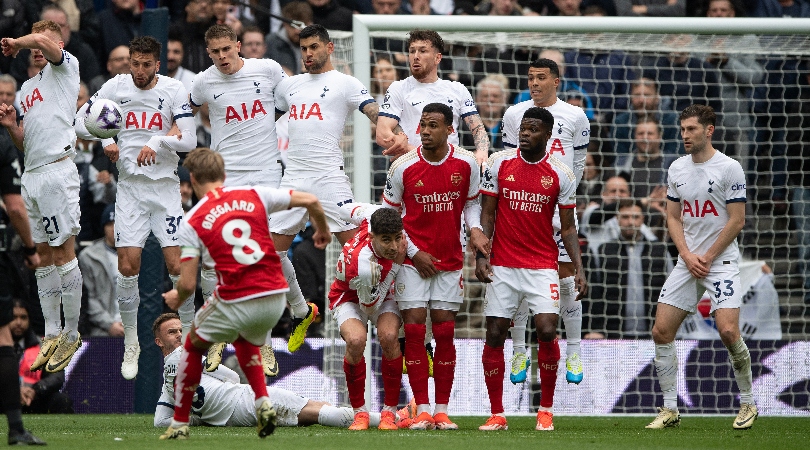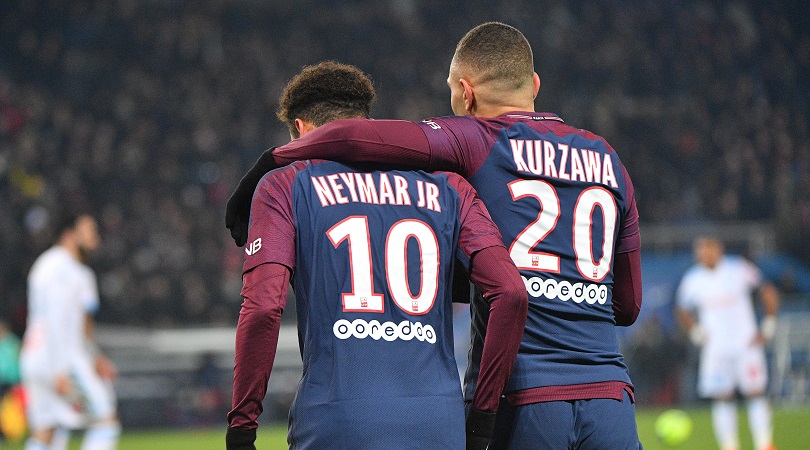
Don't fear, PSG
PSG have a tough task ahead of them on Tuesday night, when they will attempt to overturn a 3-1 deficit from the first leg of their Champions League last-16 tie against Real Madrid.
Their assignment has only got trickier since last month’s meeting at the Santiago Bernabeu, with star man and record signing Neymar sustaining an injury which will keep him out of the return game in Paris. All hope isn’t lost, however, and PSG can take inspiration from these 10 superb stand-ins.
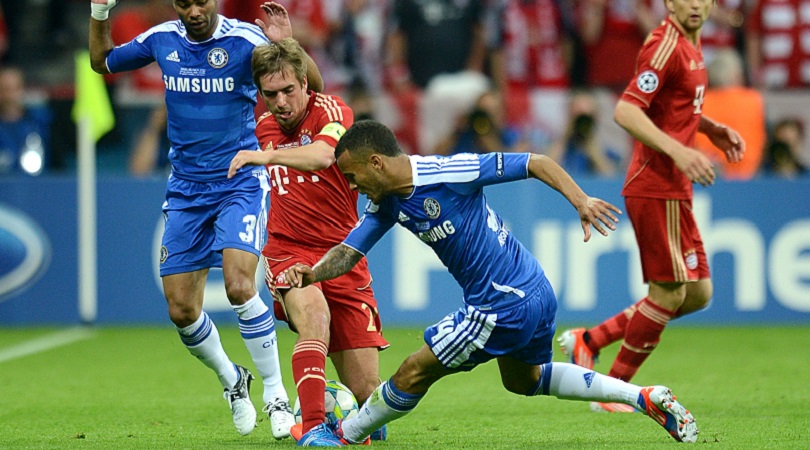
10. Ryan Bertrand (Chelsea, 2012)
Chelsea were without a host of regular starters for the 2012 Champions League Final, which forced Roberto Di Matteo to hand left-back Bertrand his first ever European appearance.
The 22-year-old acquitted himself admirably in an unfamiliar left-wing role, where he aided Ashley Cole in halting the twin threats of Arjen Robben and Philipp Lahm, before being substituted with a knock in the 73rd minute. Bayern scored 10 minutes after Bertrand’s departure, but Didier Drogba’s late header sent the game to extra time and the Blues memorably triumphed on penalties.
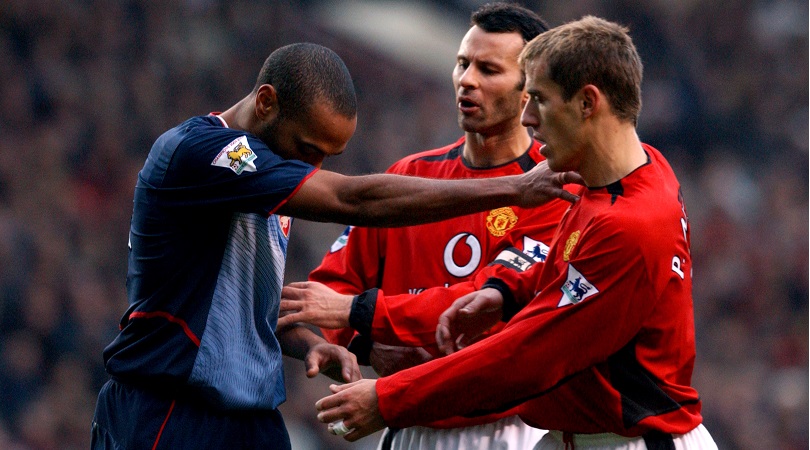
9. Phil Neville (Man United, 2002)
Reigning champions Arsenal were beaten 2-0 at Old Trafford in December 2002 and undone principally in midfield, where makeshift central midfielder Phil Neville outshone Patrick Vieira. He also snapped at the heels of Thierry Henry whenever the striker drifted out wide, prompting the Gunners to launch bitter complaints to the referee.
“At that point, we knew we had Arsenal beaten,” Neville recalled. The utility man continued to make himself useful for the rest of the season as United wrestled the title away from their rivals.
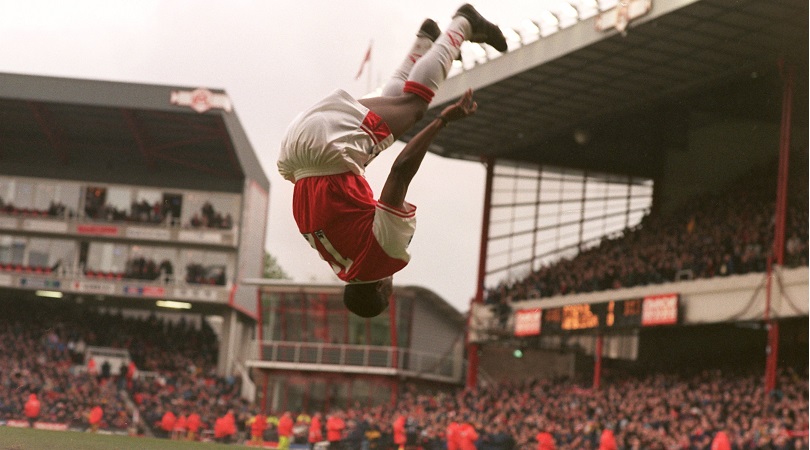
8. Christopher Wreh (Arsenal, 1998)
Aside from the fact that he was George Weah’s cousin, reserve striker Wreh’s Arsenal career appeared to be heading nowhere as the Gunners reached the business end of the 1997-98 season.
Yet in the midst of an injury and suspension crisis which claimed Ian Wright and Dennis Bergkamp, the youngster scored explosive winners against Bolton and Wimbledon in tense 1-0 victories. For good measure, Wreh also netted the decisive goal against Wolves in the FA Cup semi-final at Villa Park as Arsenal closed in on the domestic Double.
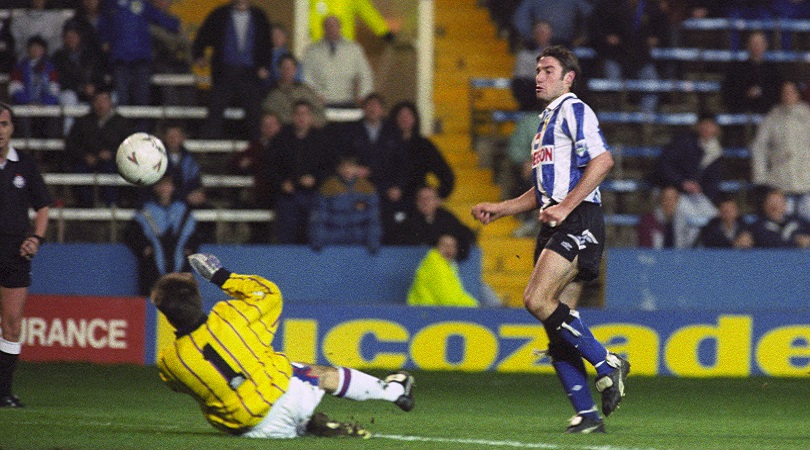
7. Paul Warhurst (Sheffield Wednesday, 1992-93)
The former Oldham defender had made a solid start at Hillsborough after joining Sheffield Wednesday in 1991, but injuries to strikers David Hirst and Mark Bright forced manager Trevor Francis to push Warhurst up front.
The shaggy-haired defender-cum-striker responded with gusto, netting 12 goals in as many games as Wednesday reached both domestic cup finals in 1993. His sojourn up front ended all too briefly, though, and after an argument with boss Francis about his best position, Warhurst signed for Blackburn – where he went on to win the Premier League.
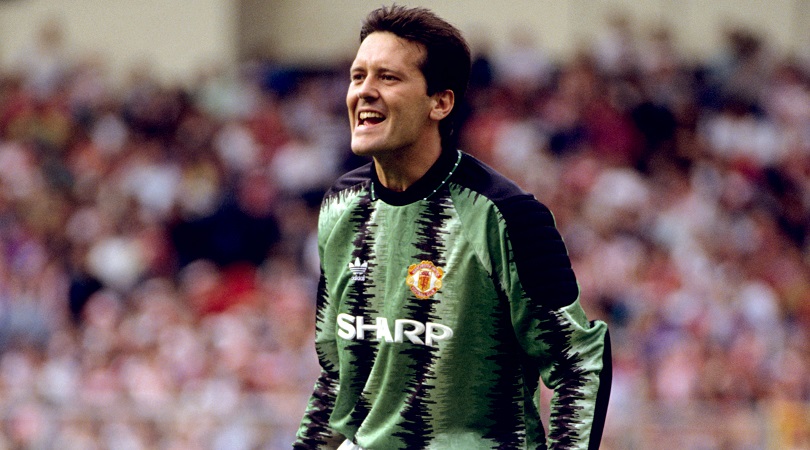
6. Les Sealey (Man United, 1990)
Alex Ferguson and goalkeeper Jim Leighton appeared attached at the hip, but the Scottish stopper’s increasingly nervous displays between the sticks saw Leighton linked with a move away from Old Trafford in summer 1990.
The shot-stopper’s form finally imploded during the 3-3 draw with Crystal Palace in that year’s FA Cup final, and Ferguson duly dropped him for the replay. Enter reserve goalie Les Sealey, who’d played barely a handful of games during United’s dreadful league season in which they’d tailed in at 13th.
Yet Sealey succeeded in keeping out Palace’s tricky strike duo of Ian Wright and Mark Bright, and Fergie won his first trophy at Old Trafford.
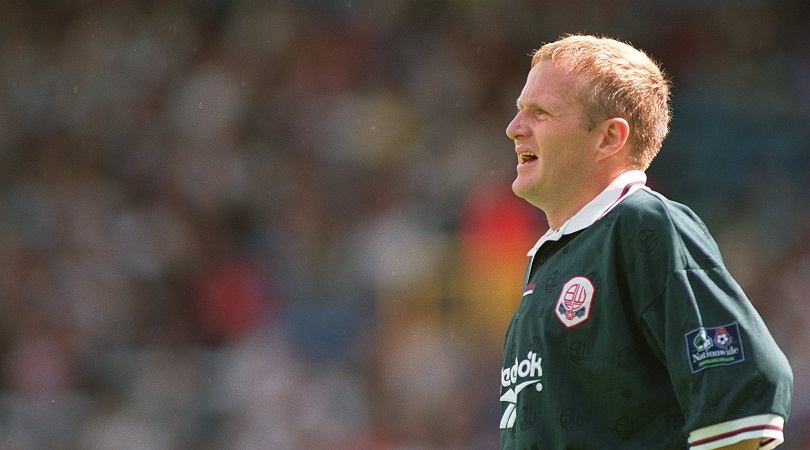
5. John McGinlay (Bolton, 1996)
On a raucous night at Burnden Park, Bolton’s McGinlay put the Trotters 2-1 up against Reading. Yet he was busy between his own posts soon after as the striker replaced Keith Branagan in goal after the latter was sent off in the second half.
The 5ft 9in Scot was in superb form and made several last-ditch stops during a frantic final 26 minutes as his side clung on to win. Manager Colin Todd praised McGinlay’s heroics as “one of the greatest things I’ve ever witnessed in football”.
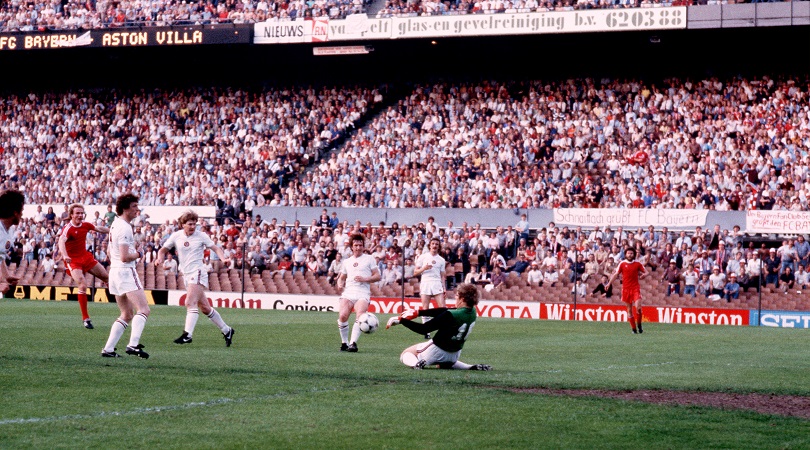
4. Nigel Spink (Aston Villa, 1982)
The former Chelmsford goalkeeper only made his Aston Villa debut five years after joining the club, but it was undoubtedly worth the wait. Ten minutes into the 1982 European Cup Final between Villa and Bayern Munich, Spink donned the gloves after No.1 Jimmy Rimmer picked up an injury.
The 23-year-old performed brilliantly, denying Klaus Augenthaler and Karl-Heinz Rummenigge before a Peter Withe goal secured Villa a shock victory. Spink became his side’s first-choice custodian midway through the next season, and went on to play for Villa for 16 more years.
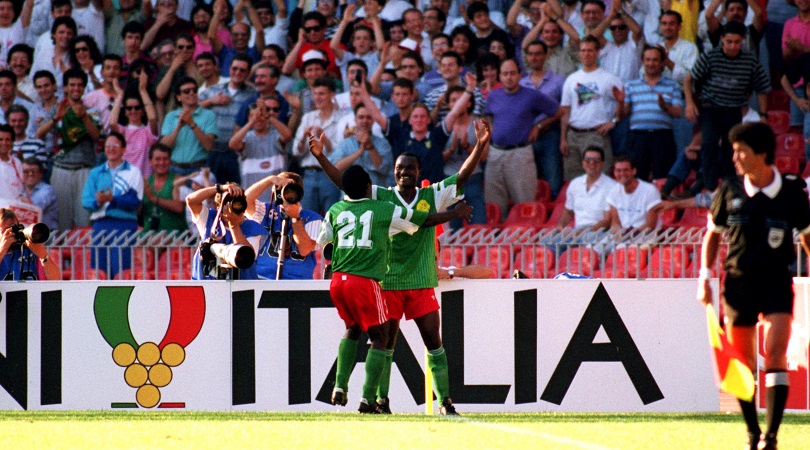
3. Roger Milla (Cameroon, 1990)
Milla may have been the posterboy of Cameroon’s exciting side at the 1990 World Cup in Italy, but he didn’t start a single game at the tournament. Instead, the forward secured legendary status as the ultimately super-sub.
His run began with a brace in a 2-1 victory over Romania, before Milla grabbed another double in the last-16 defeat of Colombia – when he famously dispossessed goalkeeper Rene Higuita and performed his famous dance around the corner flag in celebration.
The Indomitable Lions ultimately proved domitable, but not before Milla had given them a shock lead against England in the last eight.
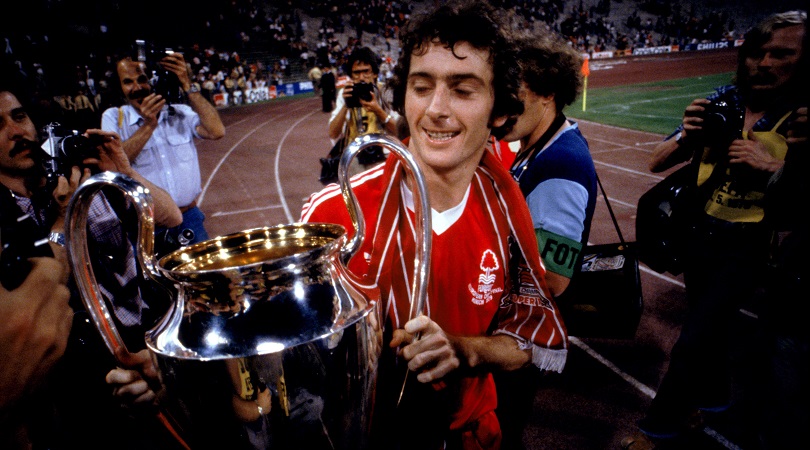
2. Trevor Francis (Nottingham Forest, 1979)
“Trevor wasn’t eligible until the later stages of the European Cup,” explained Forest manager Brian Clough, “but I took him along to the games anyway, and he made the lads tea at half-time.”
Clough, who once told Francis he was playing for Forest’s reserves because he was “too good for the third team”, was forced to change his XI after injuries to Archie Gemmill and Martin O’Neill, so Britain’s most expensive player finally made his continental bow in the 1979 European Cup Final against Malmo.
It was a dour match, save for one moment of quality. Scottish winger John Robertson put in a peach of a cross from the left flank, with Francis on hand to nod home the winner.
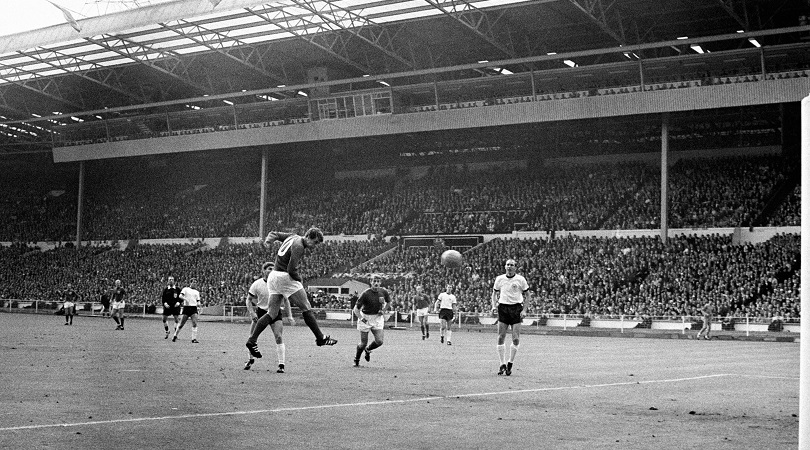
1. Geoff Hurst (England, 1966)
Pundits weren’t entirely convinced that England would win the World Cup on home soil in 1966, but picked out Spurs striker Jimmy Greaves as the Three Lions’ chief threat.
Yet Greaves endured a wretched tournament and a deep cut to his shin, sustained against France in the group stage, led to him being replaced by West Ham’s Geoff Hurst in the quarter-final. Hurst promptly netted against Argentina and kept his place for the final, where he netted a hat-trick to fire England to glory.
Greg Lea is a freelance football journalist who's filled in wherever FourFourTwo needs him since 2014. He became a Crystal Palace fan after watching a 1-0 loss to Port Vale in 1998, and once got on the scoresheet in a primary school game against Wilfried Zaha's Whitehorse Manor (an own goal in an 8-0 defeat).
 Join The Club
Join The Club











